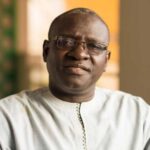BANK OF EXPERTS
MOCEVIC, Nedzad
Nedžad Moćević is junior researcher and lecturer at the University of Applied Sciences in Salzburg. He is researching in the field of prevention of violence and lecturing on the topics of radicalization and also on social change. He is also working for the “Extremism Information Center” where he is conducting workshops for social workers, teachers and other professionals who are interested in the prevention of violent radicalization. Additionally to that he is self-employed as a consultant and trainer in the field of cultural diversity and intercultural competence where he is advising companies, organizations and institutions who are interested in fostering intercultural understanding amongst their workforce or members.

MOTTET, Carol
Carol Mottet has worked at the Swiss Federal Department of Foreign Affairs (FDFA) since 2004. Currently Senior Advisor to the Human Security Division, the FDFA’s expertise centre on peace and security matters, she leads a program to prevent violent extremism, participating in the political work of the Ministry while providing expertise in carrying out various activities with program partners. From 2011 to 2014, as Special Representative, she provided support to ECOWAS’s Economic Community of West African States mediation efforts for the resolution of the conflict in Mali. She also acted as Special Advisor to the Special Representative of the United Nations Secretary General for Mali as part of the United Nations Multidimensional Integrated Stabilization Mission in Mali (MINUSMA) for the mediation process from 2013 to 2014. Specialized in public international law, humanitarian law and human rights, Ms. Mottet holds a graduate degree in international relations and a bachelor’s degree in political science from the Graduate Institute of International Studies. Mrs. Mottet is an associate member of the UNESCO-PREV Chair.
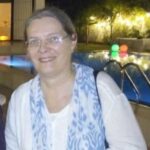
MUSLIU, Afrodita
Executive Director and founder of NEXUS Civil Concept, North Macedonia, Afrodita Musliu holds a master’s degree in International Business Administration from Swedish University of Agricultural Sciences – Department of Economics. She has 19 years of experience within civil society organizations in North Macedonia. She is a researcher and certified trainer for OSCE’s UNITED CVE Program – Youth Leaders against Intolerance and Violent Extremism (LIVE), trainer for high school teachers and school staff. Her research focuses on religious radicalism, ethno-nationalism and political extremism. Questions related to the role of women in prevention of radicalisation and countering violent extremism (P/CVE) and breaking new grounds important for prevention and building youth resilience within communities most susceptible to radicalisation that leads to violent extremism are essentials to her work. Furthermore, she is involved in a number of projects with international organizations as an expert-practitioner on development of handbooks and training curricula for preventing radicalisation and violent extremism.

NAGEM, Rasha
Doctoral researcher at the EFTS laboratory of the University of Toulouse-Jean Jaurès, Rasha Nagem is a trainer and euro-mediterranean expert the field of prevention of violent radicalization and extremism. Mrs. Nagem is Programme Manager for the PRACTICIES H2020, Integra, Erasmus+, JPCOOPS and SAT LAW European projects. Her research focuses on radicalization processes among young people and their related prevention policies, as well as the measures of impact of pedagogical prevention tools. She is involved in a number of European projects and organizations on various topics: violent extremism and radicalization, youth delinquency, migration and integration. Mrs. Nagem is an associate member of the UNESCO-PREV Chair.

NORELL, Magnus — Ph. D.
Magnus Norell is an Adjunct Scholar at the Washington Institute for Near East Policy in Washington, Senior Fellow at the European Foundation for Democracy in Brussels and Research Associate at the Wilfried Martens Center for European Studies in Brussels. His research focus mainly on International Terrorism (particularly of the religiously motivated kind), Political Violence and the tension between religion and politics. Norell has written and researched extensively on issues concerning issues of national security and democracy-changes in the Middle East/North Africa region (MENA) and Pakistan and Afghanistan. Norell has a background in Military and Civil Intelligence where he worked on Counter-Terrorism and International Terrorism. Dr Norell has a PhD in Political Science and Peace & Conflict Research from the University of Stockholm and has worked and/or studied at the Universities of Stockholm, Uppsala, Genève, Jerusalem (The Hebrew University) and Haifa.

PAUSCH, Markus — Ph. D.
Professor at the Department of Social Innovation of the Salzburg University of Applied Sciences, Markus Pausch is a political scientist with a focus on democracy and participation. He is involved in various research projects such as the EU-H2020 Project Partnership Against Violent Radicalisation in the Cities (PRACTICIES) on inclusive democracy, democratic innovation and civic education as methods of early prevention against anti-democratic extremism. Grounded in the belief that social and political exclusion increases the danger of anti-democratic movements, his theoretical and empirical research focuses on concepts of democratic inclusion and the connection between constructive and non-violent revolt and democracy. Among other topics, Mr. Pausch did research, published papers and delivered lectures on European integration, citizenship education and democracy in the workplace. Mr. Pausch is an associate member of the UNESCO-PREV Chair.
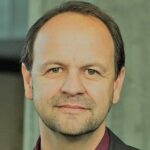
POTVIN, Maryse — Ph. D
Full Professor at the University of Québec in Montréal (UQÀM), Maryse Potvin is a political scientist and sociologist who specializes in the field of education. Director of the Observatoire sur la formation à la diversité et l’équité (OFDE), Ms. Potvin is a member of the Research and Action on Social Polarizations (RAPS) at the SHERPA Research Institute of the Montréal West Island Integrated University Health and Social Services Centre (MWI IUHSSC) and the Accessing Law and Justice (ADAJ) consortium. For the last twenty-five years, her research has focused on racism and ethnic relationships from different angles : sense of belonging and identity-related issues between majorities and minorities, social discourses, public policy and populist groups, “discursive” radicalization, identity experience and construction of youth from racialized minorities, and anti-racist, inclusive, intercultural, civic and rights-based education. Ms. Potvin’s research led her to publish more than a hundred books and articles. She worked as an expert advisor for the European Commission, the Bouchard-Taylor Commission, UNICEF Canada, the Montréal Intercultural Council (CIM), the Intercultural Relations Council (CRI), the Ministère de l’Immigration et des Communautés culturelles (MICC) and the Ministère de l’Éducation et de l’Enseignement supérieur (MEES). Mrs. Potvin is an associate member of the UNESCO-PREV Chair.
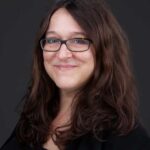
RENARD, Thomas — Ph. D.
Thomas Renard is a Senior Research Fellow at the Egmont Institute, a think tank, and Adjunct Professor at the Vesalius College, in Brussels. He has 15 years of research experience on counter-terrorism policies in Europe. His recent research focussed on responses to returning foreign fighters and their families (including children) in Europe and in the Maghreb, on radicalisation in prison and terrorist recidivism. He has done extensive research on terrorism and radicalisation in Belgium, and the evolution of counter-terrorism/radicalisation policies since 2001. Professor Renard has been invited to present his research in numerous institutions, such as the UNSC, UN CTED, GCTF, ASEM, European Commission and European Parliament. He is also regularly invited to teach or provide trainings for CVE practitioners, and is involved in several confidential policy discussions. He has also organised various trainings and study days, bringing together key academics and CVE practitioners in Belgium. Mr. Renard is an associate member of the UNESCO-PREV Chair.
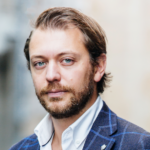
ROUSSEAU, Cécile — M.D. M.Sc.
Full Professor at the Faculty of Medicine of McGill University, Cécile Rousseau works for the Division of Social and Transcultural Psychiatry, a Department of Psychiatry unit. She is the scientific director of the Research and Action on Social Polarizations (RAPS) at the SHERPA Research Institute of the Montréal West Island Integrated University Health and Social Services Centre (MWI IUHSSC). Ms. Rousseau leads a research team on the intervention and prevention of radicalization leading to violence in the areas of health, social services and education. She also conducts research on school-based prevention programs for immigrant and refugee youth, on the impact of migration policies on mental health, on creative expression in school programs and on secondary traumas related to organized war and violence. Mrs. Rousseau is an associate member of the UNESCO-PREV Chair.
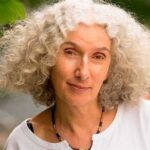
SAMBE, Bakary — Ph. D.
Bakary Sambe is director of the Timbuktu Institute, the African Center for Peace Studies based in Dakar and Niamey; coordinator of the Observatory of Radicalisms and Religious Conflicts in Africa; and a teacher-researcher at the Centre d’étude des religions (CER) at the Université Gaston Berger in Saint-Louis, Senegal. Dr. Sambe is a specialist in both transnational networks and the prevention of violent extremism in the Sahel, in both theory and practice. With a PhD in Political Science and an MA in Arab and Islamic Studies, Dr. Sambe is the author of several publications, including Morocco in South Sahara: Strategic Influence in Times of Geopolitical Changes (2013), Europe, the Mediterranean and the Arab World at the Turn of the Century (2012) and The Mali Crisis, Origins and Impact in Sahel (2012). Dr. Sambe is an associate member of the UNESCO-PREV Chair.
